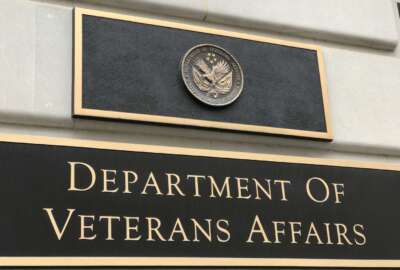

The House's passage of a government spending package has a few key implications for federal agencies in fiscal 2023.
The House cleared a funding package that included six bills, taking a few small steps forward for civilian agency spending in fiscal 2023.
In a 220 to 207 vote on July 20, the House passed a “minibus” spending package with approximately $560 billion in government funding.
In the full House vote, six out of 12 appropriations bills moved forward, supporting funding for the departments of Agriculture, Energy, Interior and Transportation, as well as the departments of Housing and Urban Development and Veterans Affairs, and several other independent agencies.
The House also passed the 2023 Financial Services and General Government spending bill, which involved some key provisions that affect federal agency funding. The bill included a total of $29.8 billion, which is $4.3 billion, or 7%, more than last year’s version of the appropriations legislation.
With no mention of federal pay, the spending bill aligned with President Joe Biden’s pay raise proposal for civilian employees in the federal workforce.
“The bill is silent on the civilian pay raise, allowing the proposed 4.6% increase to take effect,” said Rep. Mike Quigley (D-Ill.), the financial services and general government chairman, in a July 19 statement.
Funding for the Office of Personnel Management in the spending bill included a requested increase of about $70.9 million over the enacted level for 2022, which would go partially toward resolving ongoing issues in OPM’s retirement services, such as processing delays and call center responsiveness.
Report language in the bill directed OPM to provide monthly updates on how long it takes to process initial retirement claims, applications for survivor benefits, annuitant health benefit adjustments and other FEHB and FEGLI adjustments. It also called on OPM to provide quarterly updates on how to reduce processing delays and improve customer service.
The National Active and Retired Federal Employees (NARFE) Association previously expressed its support for the language included in the report.
Ross Apter, NARFE’s director of legislative and political affairs, told Federal News Network he hoped the heightened focus on OPM’s retirement services would elevate the urgency of the administration’s efforts to solve the problems.
The minibus also included $13.6 billion for IRS, an increase of $1 billion above last year’s level, going toward efforts to improve customer service and modernize the agency’s systems.
Funding of $380 million would go to the Department of Homeland Security’s consolidation at St. Elizabeths, and $500 million would go toward a new FBI headquarters.
Another $100 million would go toward electrifying the federal fleet, a key priority for the Biden administration. The Technology Modernization Fund would also receive $100 million in the spending bill.
The House did not include the Hyde Amendment in the final version of the bill, a provision that prohibits the Federal Employees Health Benefits Program from funding abortions. Democrats have been trying to remove the amendment for several years, but the change would still have to pass the Senate.
The spending package put $314.1 billion toward military construction and the VA, including an additional of $29.5 billion, over 10% more than the 2022 version. The legislation included funding for veterans’ medical research and medical care, along with improvements for military installations.
Additional funding for USDA under the minibus would account for, in part, information technology investments and improvements to staffing.
Although the House’s passage of the minibus took a step forward, there is still a long way to go to finalize federal funding for next year.
The timeline for the other six House spending bills is still undetermined. Senate appropriators have yet to release their draft spending bills, but those will likely come through by the end of July.
For the government to continue running, Congress must pass either spending bills or a short-term continuing resolution by the end of September.
Copyright © 2025 Federal News Network. All rights reserved. This website is not intended for users located within the European Economic Area.
Drew Friedman is a workforce, pay and benefits reporter for Federal News Network.
Follow @dfriedmanWFED


